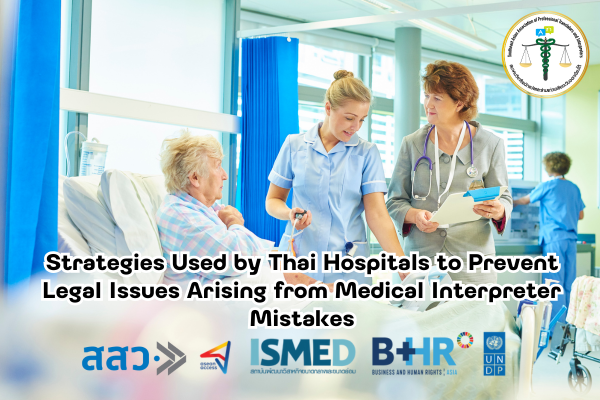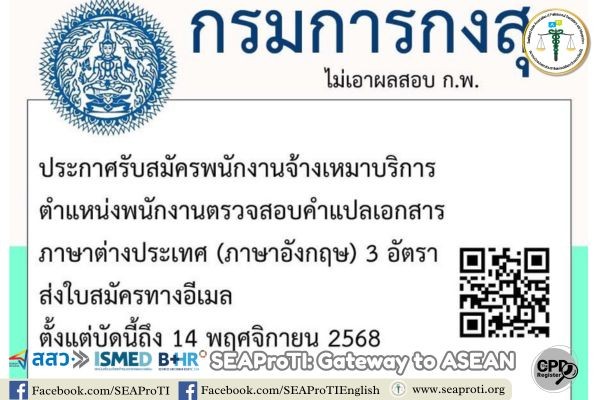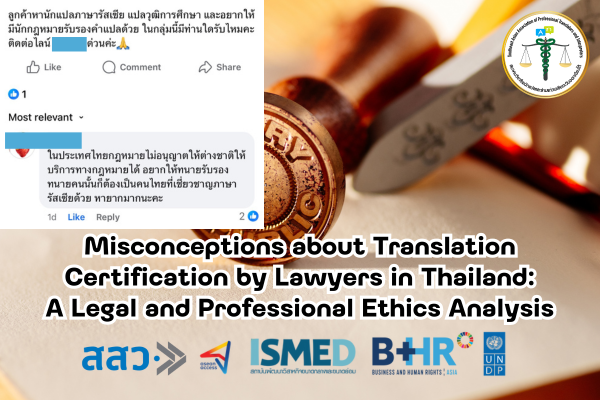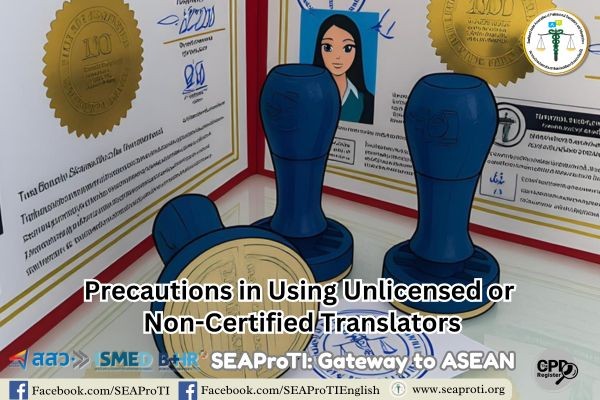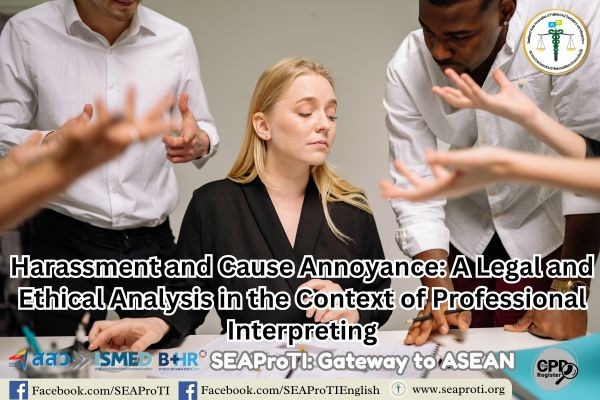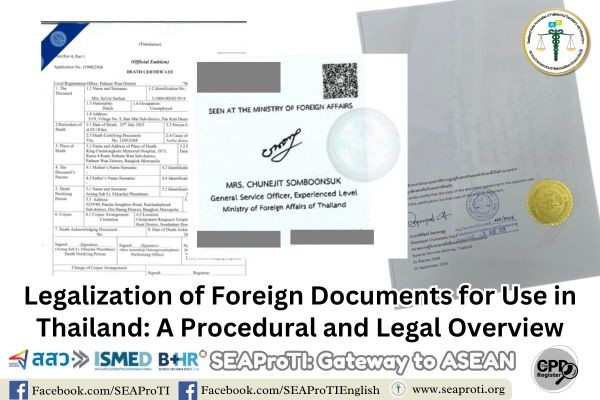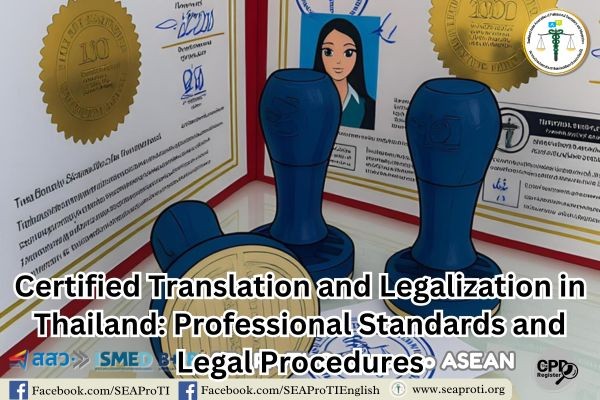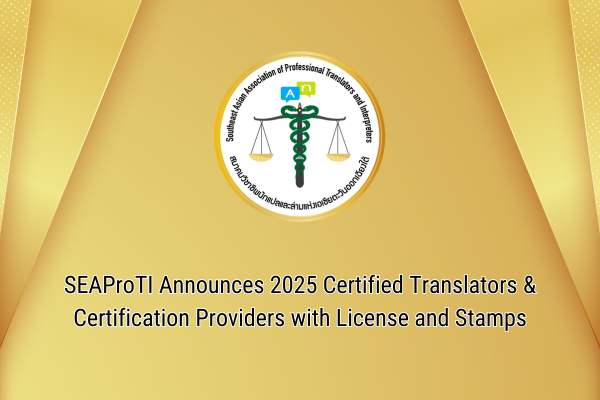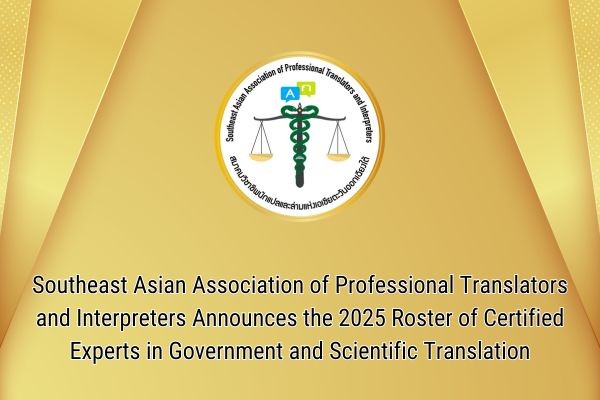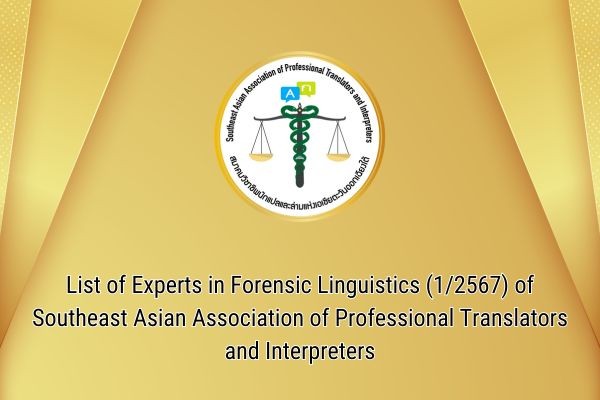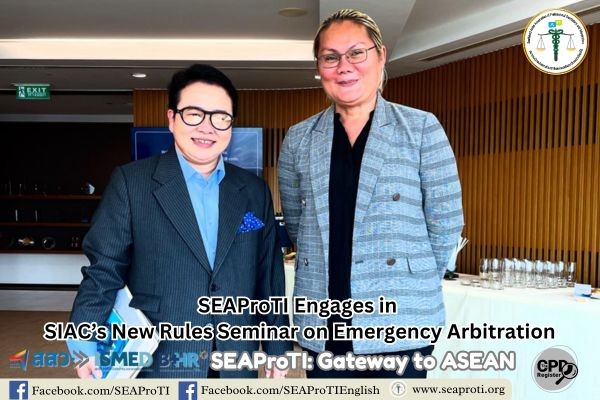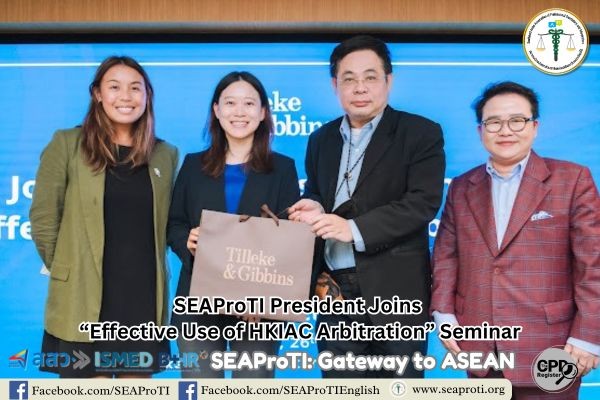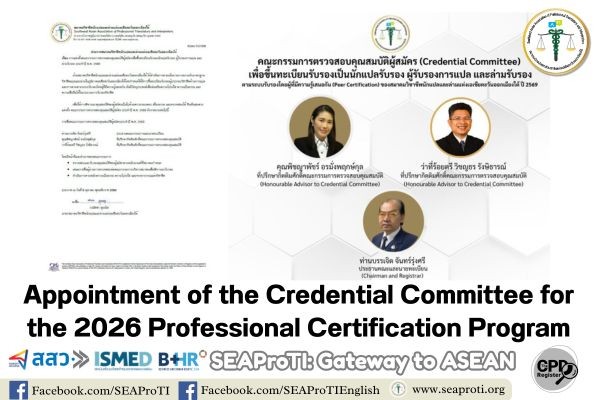Strategies Used by Thai Hospitals to Prevent Legal Issues Arising from Medical Interpreter Mistakes
21 April 2025, Bangkok – Hospitals in Thailand have increasingly recognized the importance of effective communication between healthcare providers and linguistically diverse patients. To prevent interpreter-related errors that could result in patient harm or legal consequences, many hospitals have implemented specific strategies to improve language access and reduce risks associated with untrained interpreters. These strategies include:
1. Use of Competent, Professional Medical Interpreters
Hospitals avoid using family members or friends, especially minors, as interpreters, as this practice has led to serious misunderstandings and legal claims in the past. Instead, they ensure that trained and qualified medical interpreters are available to accurately convey medical information between patients and healthcare providers.
2. Translation of Key Documents into the Patient’s Language
Important documents, such as informed consent forms and discharge instructions, are translated into the patient’s primary language to ensure clear understanding. This allows patients to make informed decisions about their care and reduces the risk of miscommunication that could lead to malpractice claims.
3. Detailed Documentation of Language Needs and Interpreter Use
Hospitals record whether a patient has limited language proficiency, whether a professional interpreter was offered and used, and who provided the interpretation. This documentation serves as evidence that the hospital complied with communication standards and helps protect against potential legal challenges.
4. Early Identification and Scheduling of Interpreter Services
Language needs are identified as soon as a patient arrives, and interpreter services are scheduled in advance to ensure their availability throughout the patient’s care. This proactive approach minimizes communication breakdowns during treatment.
5. Training for Healthcare Staff
Some hospitals provide training for their staff to raise awareness of the importance of proper language services and to enhance their own communication skills. This reduces reliance on ad hoc interpretation or informal methods that may lead to errors.
6. Institutional Policies Supporting Language Access
Hospitals have adopted system-wide policies to address language barriers, integrating interpreting and cultural mediation services as a standard part of care. These services are no longer seen as optional or last-minute solutions but are incorporated into regular healthcare delivery.
Together, these strategies aim to prevent communication errors that can harm patients and expose healthcare providers to legal liability. By prioritizing qualified interpreters and structured language access policies, Thai hospitals enhance both patient safety and legal compliance.
SEAProTI’s certified translators, translation certification providers, and certified interpreters:
The Southeast Asian Association of Professional Translators and Interpreters (SEAProTI) has officially announced the criteria and qualifications for individuals to register as “Certified Translators,” “Translation Certification Providers,” and “Certified Interpreters” under the association’s regulations. These guidelines are detailed in Sections 9 and 10 of the Royal Thai Government Gazette, issued by the Secretariat of the Cabinet under the Office of the Prime Minister of the Kingdom of Thailand, dated July 25, 2024, Volume 141, Part 66 Ng, Page 100.
To read the full publication, visit: the Royal Thai Government Gazette
แนวทางที่โรงพยาบาลในประเทศไทยใช้ป้องกันปัญหาทางกฎหมายจากความผิดพลาดของล่ามทางการแพทย์
21 เมษายน 2568, กรุงเทพมหานคร – โรงพยาบาลในประเทศไทยได้ตระหนักถึงความสำคัญของการสื่อสารที่มีประสิทธิภาพระหว่างบุคลากรทางการแพทย์และผู้ป่วยที่มีความหลากหลายทางภาษา โดยเฉพาะอย่างยิ่งเพื่อหลีกเลี่ยงความผิดพลาดที่อาจนำไปสู่ความเสียหายต่อผู้ป่วยและปัญหาทางกฎหมาย โรงพยาบาลหลายแห่งจึงได้พัฒนาแนวทางเฉพาะเพื่อเพิ่มคุณภาพของการเข้าถึงทางภาษาและลดความเสี่ยงจากการใช้ล่ามที่ไม่ผ่านการฝึกอบรม ดังนี้
1. การใช้ล่ามทางการแพทย์มืออาชีพที่มีความสามารถ
โรงพยาบาลหลีกเลี่ยงการใช้สมาชิกในครอบครัวหรือเพื่อนของผู้ป่วย โดยเฉพาะผู้เยาว์ ในการทำหน้าที่ล่าม เนื่องจากพบว่าการใช้บุคคลเหล่านี้ทำให้เกิดความเข้าใจผิดและเป็นสาเหตุของการฟ้องร้องหลายกรณี โรงพยาบาลจึงเน้นการจัดหาล่ามที่ได้รับการฝึกอบรมเฉพาะทางด้านการแพทย์ เพื่อให้สามารถถ่ายทอดข้อมูลทางการแพทย์ได้อย่างถูกต้องและชัดเจน
2. การแปลเอกสารสำคัญเป็นภาษาที่ผู้ป่วยเข้าใจ
เอกสารสำคัญ เช่น แบบฟอร์มการให้ความยินยอม (Informed Consent) และคำแนะนำหลังออกจากโรงพยาบาล ได้รับการแปลเป็นภาษาหลักของผู้ป่วย เพื่อให้ผู้ป่วยเข้าใจข้อมูลสำคัญและสามารถตัดสินใจได้อย่างมีข้อมูลครบถ้วน ซึ่งช่วยลดความเข้าใจผิดที่อาจนำไปสู่การเรียกร้องค่าเสียหาย
3. การบันทึกข้อมูลความต้องการทางภาษาและการใช้ล่าม
โรงพยาบาลมีระบบบันทึกข้อมูลว่า ผู้ป่วยมีความสามารถทางภาษาจำกัดหรือไม่ มีการเสนอล่ามให้หรือไม่ มีการใช้บริการล่ามเมื่อใด และผู้ให้บริการสื่อสารเป็นบุคคลใด ข้อมูลเหล่านี้สามารถนำมาใช้แสดงหลักฐานว่าโรงพยาบาลปฏิบัติตามมาตรฐาน และลดความเสี่ยงในการถูกกล่าวหาว่าละเลย
4. การระบุความต้องการล่ามและการนัดหมายล่วงหน้า
เมื่อผู้ป่วยมาถึงโรงพยาบาล ระบบจะระบุความต้องการใช้ล่ามตั้งแต่เนิ่น ๆ และทำการนัดหมายล่ามล่วงหน้าเพื่อให้สามารถเข้าร่วมในกระบวนการดูแลรักษาได้อย่างต่อเนื่อง ลดโอกาสเกิดปัญหาในการสื่อสาร
5. การฝึกอบรมบุคลากรทางการแพทย์
โรงพยาบาลบางแห่งได้จัดฝึกอบรมบุคลากรให้ตระหนักถึงความสำคัญของบริการด้านภาษา รวมถึงพัฒนาทักษะการสื่อสารของตนเอง เพื่อลดการพึ่งพาการแปลแบบไม่เป็นทางการหรือโดยบุคคลที่ไม่มีคุณสมบัติ
6. การกำหนดนโยบายระดับองค์กรเพื่อสนับสนุนการเข้าถึงทางภาษา
หลายโรงพยาบาลได้นำนโยบายที่ครอบคลุมด้านการสื่อสารกับผู้ป่วยที่มีภาษาต่างออกไปมาใช้ โดยรวมบริการล่ามและการไกล่เกลี่ยทางวัฒนธรรมเข้าไว้เป็นส่วนหนึ่งของการดูแลตามปกติ ไม่ใช่เป็นเพียงบริการฉุกเฉินหรือทางเลือก
แนวทางเหล่านี้ไม่เพียงแต่ช่วยให้ผู้ป่วยได้รับการดูแลอย่างปลอดภัยและมีคุณภาพ แต่ยังช่วยให้โรงพยาบาลสามารถลดความเสี่ยงทางกฎหมายที่อาจเกิดขึ้นจากการสื่อสารผิดพลาดผ่านล่ามที่ไม่ผ่านการฝึกอบรมได้อย่างเป็นรูปธรรม
เกี่ยวกับนักแปลรับรอง ผู้รับรองการแปล และล่ามรับรองของสมาคมวิชาชีพนักแปลและล่ามแห่งเอเชียตะวันออกเฉียงใต้
สมาคมวิชาชีพนักแปลและล่ามแห่งเอเชียตะวันออกเฉียงใต้ (SEAProTI) ได้ประกาศหลักเกณฑ์และคุณสมบัติผู้ที่ขึ้นทะเบียนเป็น “นักแปลรับรอง (Certified Translators) และผู้รับรองการแปล (Translation Certification Providers) และล่ามรับรอง (Certified Interpreters)” ของสมาคม หมวดที่ 9 และหมวดที่ 10 ในราชกิจจานุเบกษา ของสำนักเลขาธิการคณะรัฐมนตรี ในสำนักนายกรัฐมนตรี แห่งราชอาณาจักรไทย ลงวันที่ 25 ก.ค. 2567 เล่มที่ 141 ตอนที่ 66 ง หน้า 100 อ่านฉบับเต็มได้ที่: นักแปลรับรอง ผู้รับรองการแปล และล่ามรับรอง


